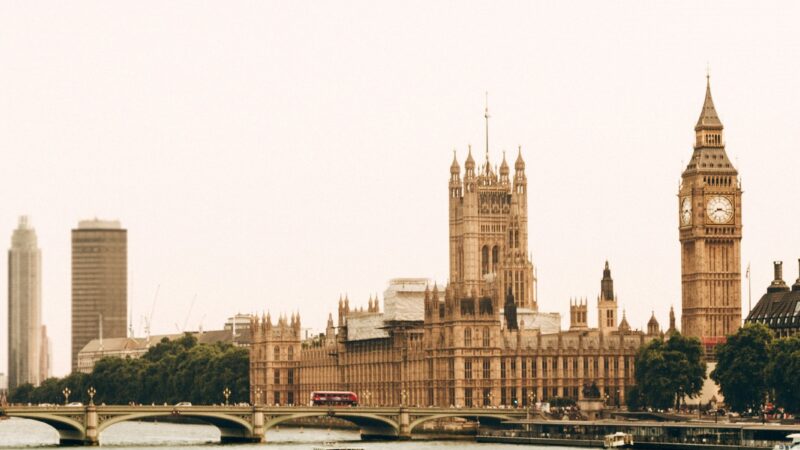All too often, open-border policy stems from the fact that politics is determined by a class of people with deep-seated illusions about the facts surrounding immigration. Sweden is an ideal example of this pattern. Of all the countries in Europe, Sweden is especially notorious for having welcomed large numbers of refugees it could not properly integrate. In 2015, notes columnist James Traub, the country absorbed 163,000 of them. It has not gone well. Skyrocketing crime rates, mass unemployment among immigrants, and heavy strain on the welfare state have made Swedes weary of incoming foreigners. As a result, writes Traub, even Sweden’s Social Democrats have embraced ‘harsh language’ which used to be monopolised by ‘far-right nativists.’
This year’s November issue of the academic journal Kyklos includes the article Misrepresentation and migration, which explores the causes of that initial Swedish openness to migrants. Authors Anders Kärnä and Patrik Öhberg note that the extreme permissiveness with which migrants were let into the country ran radically counter to the will of the Swedish electorate. Voters’ dissatisfaction brought a right-wing government to power in 2022 and fueled the rise of the hard-right Sweden Democrats. Backlash was so strong that in 2015 the country’s prime minister was forced to make a U-turn and advocate for tougher restrictions after pushing for open borders earlier that year.
So why did the political class initially defy popular opinion to welcome hundreds of thousands of foreigners? Kärnä and Öhberg argue that Swedish politicians held far different views on the subject than their constituents. Polling coducted over the years shows that in every major party other than the Sweden Democrats, politicians were significantly less likely than their constituents to favour accepting fewer refugees until 2018. The authors conclude that pushback from the voting public, including through the emergence of the Sweden Democrats as a political competitor, eventually drove elected officials in other parties to revise their positions. Nevertheless, politicians from two of the three left-wing parties continued to be somewhat more pro-refugee than their constituents in 2018, the last year for which numbers are provided.
Contrary to what one might assume, the disagreement between politicians and voters did not occur because the politicians were better informed than the common people. On the contrary, they were deeply mistaken about the effects of their policies. The authors cite survey data from 2015 and 2017, showing that most Swedish politicians thought the economic impact of accepting refugees was ‘positive in the long run.’ However, they demonstrate that this belief is contradicted by all available peer-reviewed journal articles and by all the expert analyses of the issue which have appeared in official reports by the Swedish government. The existing studies indicated, and still indicate, that refugees are harmful rather than beneficial to Swedish economic performance. In other words, the idea that refugees were good for the economy was a piety which the political class held against all evidence.
Sweden’s experience is not unique. The immigration debate in the United States has also been marked by false ideas which politicians continue to hold despite overwhelming evidence against them. As Steven Camarota of the Center for Immigration Studies has observed, the notion that immigration can remedy ‘the aging of American society’ continues to be unquestioningly advanced by advocates of open borders even though it is blatantly inconsistent with the facts. The increasing average age of immigrants, their decreasing fertility rates, and the sheer size of the influx which would be required to offset American demographic woes make such a project impracticable.
Kärnä and Öhberg’s paper considers the irrationality of unfettered immigration only from an economic standpoint, but it is harmful in other ways as well. In addition to economic consequences, accepting countless immigrants whose values are incompatible with those of the host society creates sociopolitical problems with no obvious solution.
One such issue is organised crime. The Financial Times reports that, relative to population size, Sweden suffers from the third-highest rate of gun deaths of any EU country. A major cause of this epidemic is ‘[w]ell-established criminal gangs’ which are ‘largely run by second-generation immigrants.’ Sweden’s prime minister has identified ‘irresponsible immigration policy and failed integration’ as the root of the epidemic. Meanwhile, as France 24 details, the Swedish government is currently considering options which would let it deport ‘asylum-seekers and immigrants for substance abuse, association with criminal groups or statements threatening Swedish values.’
The political repercussions of large-scale immigration are also severe, and the presence of people who do not share Western values presents a serious threat. For instance, Sweden’s left-wing parties have dithered in their condemnation of Hamas’s terrorist attack against Israel. ‘If you assume,’ explains journalist Richard Orange, ‘that the 200,000, or perhaps even as many as 250,000, Arabic speakers [in Sweden] are broadly pro-Palestinian, that’s an important voter base.’
Dominik Tarczyński, a Member of the European Parliament from Poland, eloquently addressed the sociopolitical implications of immigration in a September speech. He pointed out that despite receiving no large-scale immigration, Poland was prospering economically, and said the Polish people did not want more migrants. ‘You know why? Because there are zero terrorist attacks in Poland,’ he explained, citing EU statistics.
Europol’s data on terrorism do indeed bear out Tarczyński’s claim. The agency’s Terrorism Situation and Trend Report for 2023 provides a map of the EU showing how many terrorist attacks and ‘arrests on suspicion of terrorism’ each country experienced in 2022. Poland was among the handful of states where none of either occurred. France was arguably the country most affected, with six attacks and 109 arrests, though Italy suffered twelve attacks and carried out 45 arrests. Notably, jihadist terrorism prompted far more arrests than any other kind of terrorism from 2020 to 2022, although leftist and anarchist terrorism accounted for a few more attacks – 44 versus 30. Sweden experienced an attack during this period. Poland did not.
The migrants’ cultural background is the key issue, more so than immigration itself. On another occasion, Tarczyński told leftist televison host Cathy Newman: ‘We took over two million Ukrainians, who are working, who are peaceful in Poland. We will not receive even one Muslim.’ This, he emphasized, was the will of the Polish electorate. If Tarczyński is representative – and he is – then Poland’s immigration policy is based on a realistic understanding of the effects of mass migration as well as on respect for the will of the people. As Kärnä and Öhberg show, both of these considerations failed to inform Swedish immigration policy for most of the 2000s and 2010s, and it is dubious whether they have enough of an impact even today.
Tarczyński’s motto is ‘Be like Poland.’ Swedish politicians should take that advice to heart. To judge by experience, however, it will fall to Sweden’s voters to make them do so.



